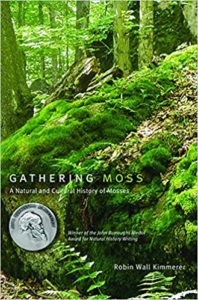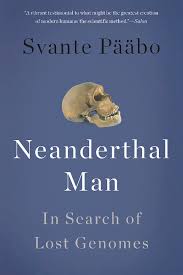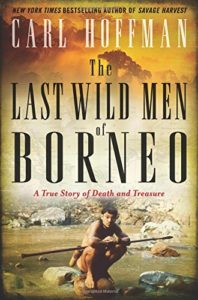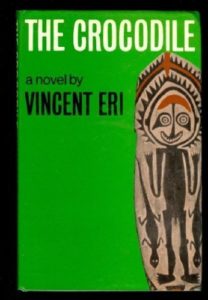Top 5 Non-Fiction Books I Read While Researching my Rainforest Novel
I may have mentioned before that I did a teeny-weeny little bit of research for my novel-in-progress, Last of Kin. Set in a remote, New Guinea rainforest, it features two strong female protagonists — an ambitious paleontologist and a living descendent of the otherwise extinct hominid species homo floresiensis.
Actually, it is quite possible I spent more money on books and obscure academic papers while researching the setting and subject matter of the novel than I will ever see back in a publisher’s advance. But, hey, it was really fun! So, I thought I’d share my favorites:
- Throwim Way Leg by Tim Flannery
OK, this is the book that started it all. After I read two news articles that gave me the idea for my novel’s premise, I wanted to learn more about New Guinea, so I went to the local library and found this funny, fascinating classic. I loved the book so much I bought my own copy. Forget for a moment that Tim Flannery is a world-class scientist. This guy can write. If you like to read about travel, adventure and unique, far-flung cultures, you need to read this book.
2. Gathering Moss by Robin Wall Kimmerer
So, on its face, a book that is literally about moss growing on rocks doesn’t sound thrilling. But man, there is a reason this collection of personal essays won the John Burroughs Medal Award for Nature Writing. Somehow, this wonderful scientist, teacher and member of the Citizen Potawatomi Nation uses mosses as a metaphor for the intimate, interconnectedness of our human lives. She writes not only about science, but motherhood, human folly and indigenous ways of knowing. A favorite line: “My feet touching the ground are like fingers on the piano, playing from memory an old sweet song, of pine needles and sand.”
3. Guns, Germs, and Steel by Jared Diamond
I’d been meaning to read this classic for a long while. I finally decided to tackle all 500 of its pages when I was thinking a lot about why homo sapiens is the only human species that is still alive and about why that might be. My theory: It’s not just because we’re sooo smart.
This book seemed a natural thing to read, then, because Diamond’s main premise is that certain human civilizations have conquered other human societies not because they are inherently superior, but because of environmental differences that bestowed certain advantages early on (i.e. an abundance of wild foods and animals that could be easily domesticated, leading to earlier agriculture, leading to the earlier cities and technological advances, leading to, you know, Columbus).
What I didn’t realize until I actually read the book was that Diamond got the idea for this theory while working in New Guinea. And that he is the first European to have explored the Foja Mountains, where my novel is set. Crazy coincidence, to say the least.
Although Diamond lays out a lot of reasons why New Guinea people lived in the so-called “Stone Age” until about 200 year ago (meaning they used stone tools) , I used his argument as a sort of reverse cookbook for my worldbuilding of a homo floresiensis society – a society that could have not only survived but flourished hidden in the cloud rainforest all these years.
4. Neanderthal Man by Svante Pääbo
When I first learned about Neanderthals in the fifth grade, I pictured hairy, grunting, hunched-over brutes. By the time I was in college and started taking anthropology classes, everyone was debating whether they buried their dead or could speak. Now we know Neanderthals were so similar to us that we interbred: Neanderthals contribute 1-4 percent of the genomes of non-African modern humans.
How do we know about this genetic link? To find out, read this fascinating book about ancient DNA and the race to sequence the Neanderthal genome.
5. Savage Harvest and The Last Wild Man of Borneo by Carl Hoffman
Technically two books, but a Top Five list sounded better than Top Six, and they’re by the same author, so I’ll throw them in together.
Carl Hoffman’s Savage Harvest is a true, mystery-meets-adventure story about 23-year-old Michael C. Rockefeller (yes, those Rockefellers), who was traveling in New Guinea on an expedition for the Museum of Primitive Art in 1961 when his boat capsized. Rockefeller vanished, but there have always been rumors (which his family denied) that he was captured, killed and eaten by a tribe of cannibals.
Hoffan is a journalist who uncovers the full story of what happened and, although I don’t want to spoil the ending for you, it’s pretty amazing. My biggest unexpected takeaway from the book was a better understanding of how the United States is complicit in the current political situation in western New Guinea — how rich, powerful men who supposedly held democratic values made decisions to deny those same democratic rights to the poor and powerless in a compromise that still reverberates today.
Hoffman’s next book, The Last Wild Man in Borneo, isn’t about New Guinea, but I found its themes even more relevant. In a nutshell, the book is about “Western hunger for eastern solace” and an environmental activist’s obsession with the Penan, an indigenous people he lived with for years and who eventually accepted him as a member of their tribe before he disappeared in 2000.
Although I knew from the start that I wanted to avoid tropes like the “White Savior,” the “Noble Savage” and the “Magical Other” when writing my novel, this book was a very good reminder of how deeply these fictional clichés are imbedded in Western psyche. In real life, when environmental activist Bruno Manser tried to “save” the Penan, he failed utterly, and his failure tore him apart.
A final note: One of the things I found woefully missing while reading up on this part of the world were books about New Guinea that were actually written by people from New Guinea. Although there is a growing body of work online regarding the political situation in the western half of the island, most of the English-language books I found are by Western scientists, missionaries and journalists. But I’m still on the lookout. If you have any suggestions, contact me, and I’d love to read and feature them here.
Fiction wise, I just started reading The Crocodile by Vincent Eri. As far as I can tell, Eri was the first Papua New Guinea author to publish a novel in English with this book, which debuted in 1970.




